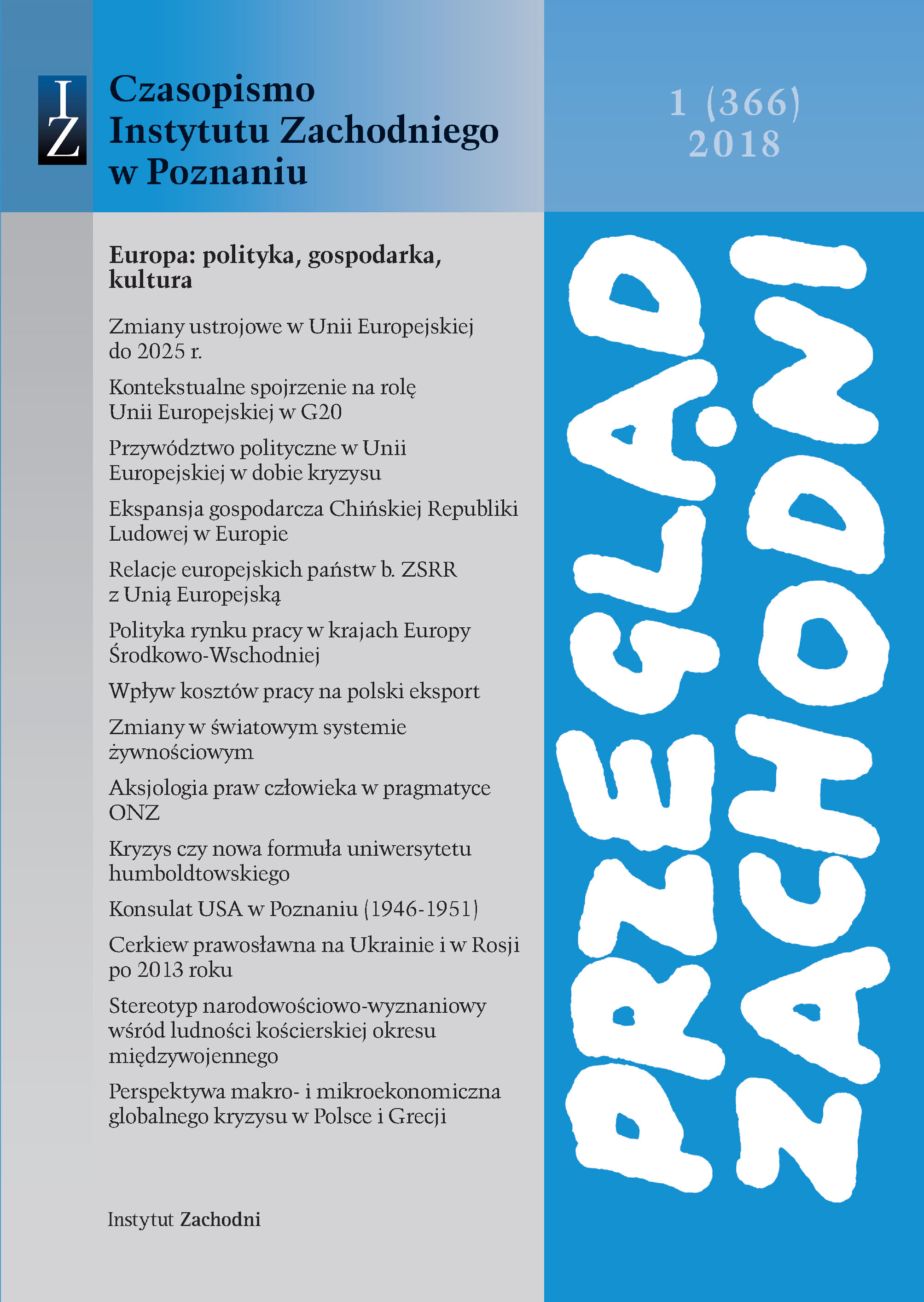Aksjologia praw człowieka jako wyznacznik pragmatyzmu ONZ. Nowy paradygmat bezpieczeństwa i prawa człowieka – metaforyzacje w prawie
The axiology of human rights as a determinant of the UN's pragmatism. A new paradigm of security and human rights - metaphorization in the law
Author(s): Jerzy Menkes, Anna Kociolek-PęksaSubject(s): Human Rights and Humanitarian Law
Published by: Instytut Zachodni im. Zygmunta Wojciechowskiego
Keywords: axiology of Human Rights; United Nations; national identity; right to self-determination; Responsibility to Protect; freedom; peace; Charter of the United Nations
Summary/Abstract: The purpose of the study: The aim of the study is to examine whether and how public international law (in genere) and international human rights (in specie) is subject to change. The aim of the study is also to investigate whether and how this has consequences for international security.Research problems: Main research problems: Has the paradigm of international public law changed (regardless of whether it is subject to the process of legal convergence or legal discrepancy), and has the paradigm for the protection of human rights been transformed due to this transformation? In connection with the above-mentioned transformations, or in autonomous way, could there be or has there been a redefinition of the role of the state and the idea and method of exercising sovereignty?What is happening in the sphere of international security in connection with these changes, and in particular what is the actual UN’s standard of protection of human rights? Research methods:analysis of source texts (acts of public international law); comparative analysisof political solutions and legally conditioned socio-political phenomena (dogmatic, legal philosophy andlegal sociology analysis, with elements of political and legal history analysis) in diachronic terms for thestudied range.Conclusion: State sovereignty has been transformed from the title of claim to cease the violation intothe personal right to protection (vested in an individual and minority/people/mankind in general).The inherent unity of the international law as the common legal system of the international communityis subject, along with this community, to fundamental divergence: into the law governing (internal)relationships between members of the transatlantic security community (NATO acquis and the Europeanlaw), which form a normatively and institutionally interrelated self-contained regime on the one hand, and the international law that governs the relations between the countries of the Western Hemisphere andother subjects of the international law on the other hand.
Journal: Przegląd Zachodni
- Issue Year: 366/2018
- Issue No: 01
- Page Range: 147-160
- Page Count: 14
- Language: English, Polish

